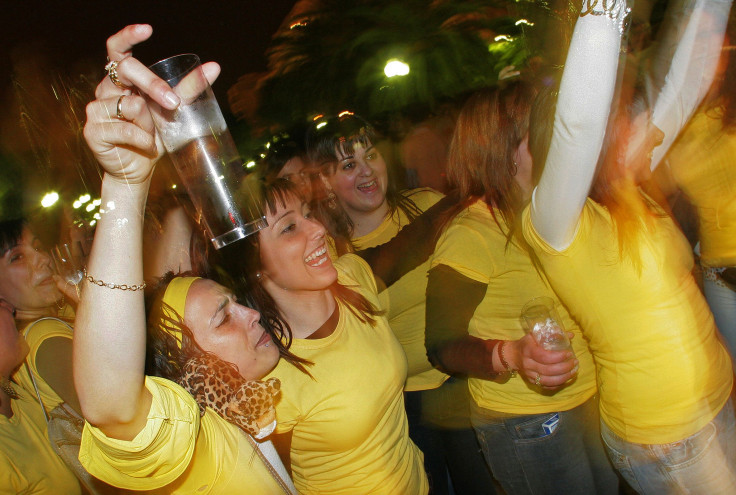Underage Drinking: Friends' Alcohol Use Matters To Teens, Not Their General Peer Group's

Many parents worry about their teen’s closest friends, since even a single “bad apple” might exert a very negative influence on their child’s life. Now, the latest research from Indiana University supports this common parental instinct. A teen’s alcohol consumption is guided by the behavior of their closest friends, the researchers found, regardless of whether they thought other kids their age drank or not.
"We've known for a long time that friends and peers have an influence on individual alcohol use, but there are no common studies that distinguished between the broader peer group and the friend group's influence on those decisions," said Jonathon Beckmeyer, lead author of the study and assistant professor at the IU School of Public Health-Bloomington.
Focusing on when teens begin to drink and the ways their relationships shape those experiences, Beckmeyer began his research by examining data from the National Institute of Child Health and Human Development's Study of Early Child Care and Youth Development. The study's 814 participants, all 15 years old at the time, were asked a series of questions about how many people their own age drank alcohol, how many of their actual friends drank, and whether they themselves had consumed alcohol over the past year. After collecting the data, the researchers compared answers and analyzed the results.
“Although adolescents’ perceptions of both the amount peers and friends use alcohol were associated with past year alcohol consumption, perceptions of friends’ alcohol use appear more influential,” wrote Beckmeyer and his colleagues.
Teens’ perceptions of alcohol use among their actual friends held more weight than their perceptions about drinking among their peers overall. Even when a teen believed many other teens were drinking, they themselves were unlikely to have experimented if their friends weren’t partying. Interestingly, the results indicate whether friends drank a lot or a little was not an issue. Only the number of drinking friends mattered; those teenagers who believed many of their friends were drinking were more inclined to follow suit, while those who believed few of their friends drank were not likely to pick up the habit.
"Working to encourage teens to make friendships with non-alcohol-using friends could be one of the more effective things parents can do to help," said Beckmeyer in a statement. He is presenting his study, "Comparing perceptions of how many peers and friends use alcohol: Associations with middle adolescents' own alcohol use," at the American Public Health Association's Annual Meeting.



























